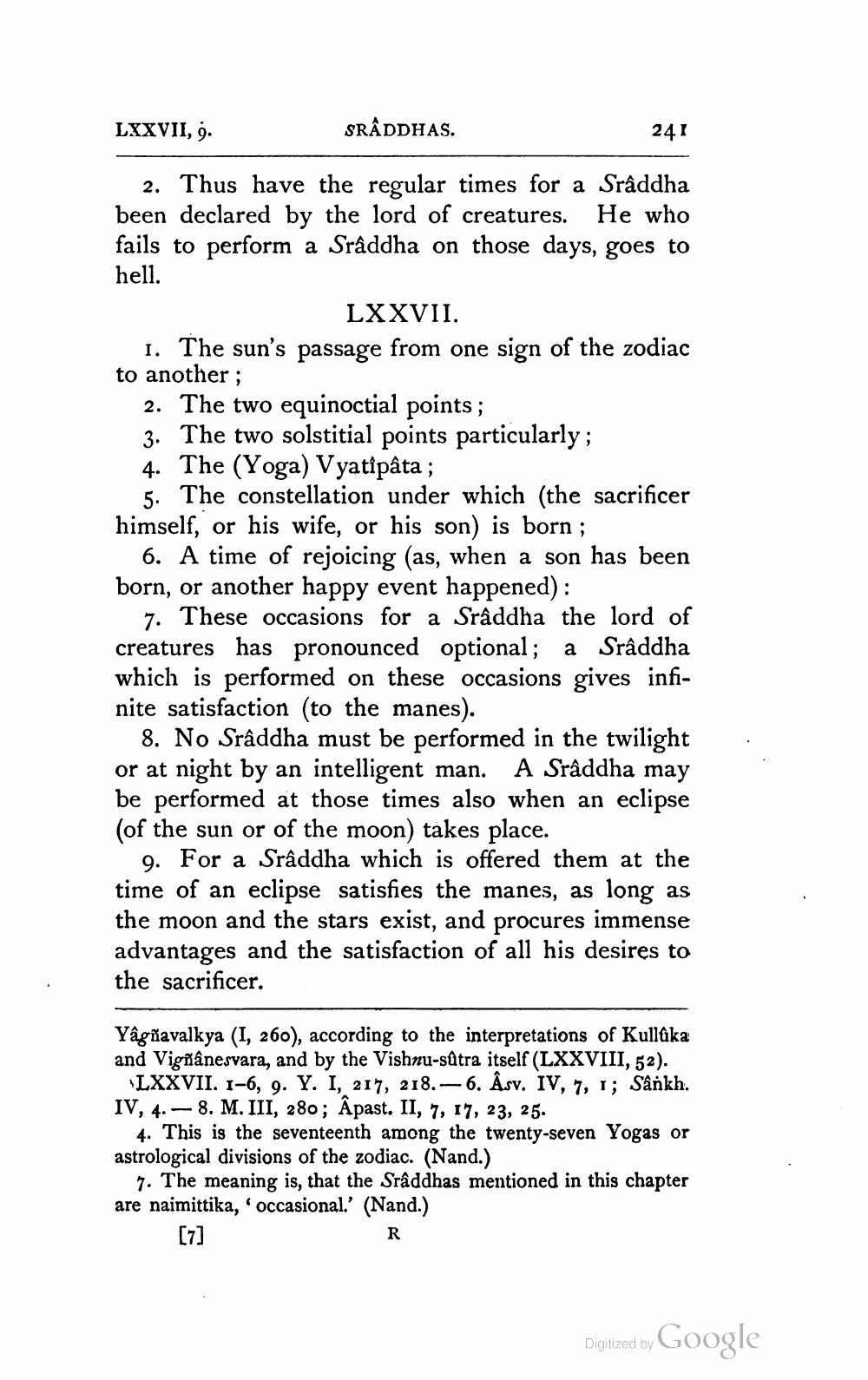________________
LXXVII, §.
SRÂDDHAS.
241
2. Thus have the regular times for a Sraddha been declared by the lord of creatures. He who fails to perform a Sraddha on those days, goes to hell.
LXXVII. 1. The sun's passage from one sign of the zodiac to another ;
2. The two equinoctial points; 3. The two solstitial points particularly; 4. The (Yoga) Vyatipâta ;
5. The constellation under which (the sacrificer himself, or his wife, or his son) is born ;
6. A time of rejoicing (as, when a son has been born, or another happy event happened):
7. These occasions for a Sraddha the lord of creatures has pronounced optional; a Sraddha which is performed on these occasions gives infinite satisfaction (to the manes).
8. No Sraddha must be performed in the twilight or at night by an intelligent man. A Sraddha may be performed at those times also when an eclipse (of the sun or of the moon) takes place.
9. For a Sraddha which is offered them at the time of an eclipse satisfies the manes, as long as the moon and the stars exist, and procures immense advantages and the satisfaction of all his desires to the sacrificer.
Yagñavalkya (I, 260), according to the interpretations of Kullgka and Vigñanesvara, and by the Vishnu-sútra itself (LXXVIII, 52).
LXXVII. 1-6, 9. Y. I, 217, 218.-6. Asv. IV, 7, 1; Sankh. IV, 4. - 8. M. III, 280; Äpast. II, 7, 17, 23, 25.
4. This is the seventeenth among the twenty-seven Yogas or astrological divisions of the zodiac. (Nand.)
7. The meaning is, that the Sraddhas mentioned in this chapter are naimittika, 'occasional.' (Nand.)
[7]
Diglized by Google




